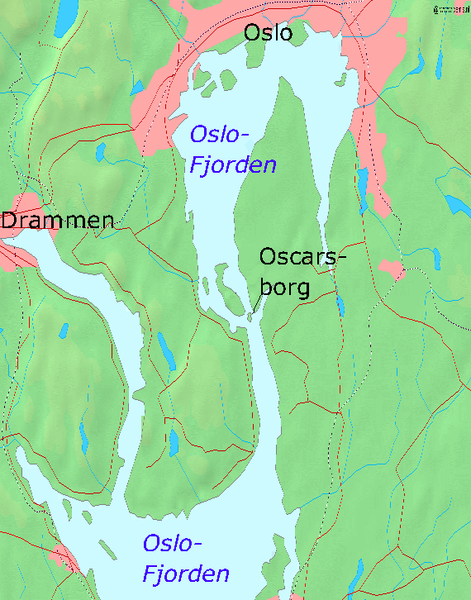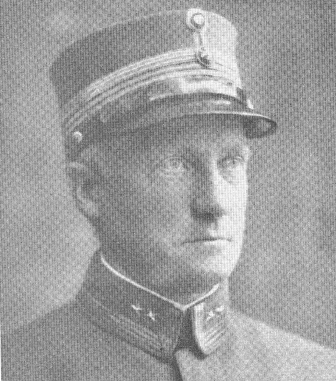The war is about to begin. You are in command of your Navy's newest ship and are leading the attack on another nation's capital. Decades before others thought they had discovered such concepts as "Shock and Awe" and "Decaptitation Strikes" - you are on the tip of the spear of an attack that will seize the Head of State of the target nation before they even have a chance to resist.
Your opposition? A weak nation with a weak military - a nation you hold in contempt as the arrogance of their self-declared neutrality has lulled them into thinking they were beyond the reach of the most feared warriors the world has ever known. They are so weak that you are sailing right into their nation's capital. The only thing they oppose you with are obsolete, static defenses that even your Grandfather would dismiss. It is a great day for Victory.
Will your nation be able to stay out of this war? Which side will try to seize your capital? Will they keep to themselves? Your nation just wants to be left out of everyone else's wars. We have no claim on anyone's land or treasure. We insult no one. We just want to be left alone.
You are old - well past you life expectancy. When you started your service, most ships were just getting steel warships, there were no cars, trains were a rare treat - and the only things that flew flapped their wings.
Your command is over a hundred years old, your weapons are older than the fathers of the raw recruits you have running around your battlements. Your main guns are 50 years old.
This is your Command though - your young sailors make up for their lack of experience by the bravery that comes from bravado and ignorance. That will be good enough. You have one trick though. One thing the enemy, whoever they are, do not know about. Thing is, your "secret weapon" is 40 years old. You feel old; but heck your secret weapons once belonged to an Empire that no longer exists - but that's OK - your people are known for keeping their equipment in good shape. You are worried. Even though the officer in charge of your secret weapon is out sick, you had a small boat pick up a retired Commander who, 31 years ago, once worked with them. He showed up last night. He will have to do - even though he looks like a museum ship in his old, ill-fitting uniform.
Sigh, you go to war with what you have - not what you wish you had.You have no orders.
The approaching naval force already had forced their way past the outer forts and had received both warning shots and live rounds. As the vessels continue towards the capital, you make a decision; you consider them enemy warships and will engage them as such. Knowing your job, you turn to your men and state;
"Either we will become heroes or we will be court-martialled. Let's just do our duty for our country."
 And so, it starts.
And so, it starts.The total German naval attack comprised 1 heavy, 1 armoured and 1 light cruiser, 14 destroyers, 14 torpedo boats and miners and 41 freighters and tankers.That is it. You have done what you could. But there is still work to do.
Hitler's planned to take the Norwegians by surprise and forcing them to surrender within hours (like he did in Denmark). But the first surprise he encountered was when the pride of his Navy, the brand new heavy cruiser "Blücher" - that was to spearhead the surprise attack on the nation's capital - at 4 AM, at full speed, no lights.The heavy cruiser Blücher now moved slowly with darkened lanterns towards the old fortress built in 1847, obviously believing they could just sneak past. Erichsen stood at the main battery with his men to demonstrate that he as the boss was in the front line. As the German ships appeared from the darkness and morning fog, the loomed like giants ahead. A nervous, newly graduated lieutenant fiddled with the range finder and reported, "Distance 3,000 meter". "Nonsense!", Erichsen grumbled and shouted, "Distance 1,200 meter - Gun no. 1, Fire!" He never calculated to get off more than two shots with the museum-aged guns and his untrained men (some of them were the cooks!), so he had to get a hit!
By sheer luck, the first 28-cm shell hit the Blücher's forward gunnery control station, effectively disabling the ship's forward guns. The second main battery round hit the aircraft hangar, destroying the ship's Arado Ar 196 reconnaissance seaplanes and igniting aviation fuel and infantry munitions stored on deck. There was only time for the main battery to fire these two rounds, due to their slow reload time. After losing its fire control system the Blücher was rendered unable to effectively respond to the fortress' bombardment. Blucher's main 20,3 cm guns never opened fire.
While fire was raging aboard the Blücher, the secondary Norwegian coastal batteries pelted her with guns ranging in calibre from the two small 57 millimetre pieces at Husvik, designed to protect the fortress' missing naval mine barrier, to the three 15-cm guns of the Kopås battery on the eastern side of the fjord. The larger guns wrought havoc on board the cruiser while the 57-mm guns were successful in suppressing the fire from her light artillery as the Blücher slowly slid past the fortress. All in all thirteen 15-cm rounds and about thirty 57-mm shells hit the German cruiser as it passed the guns of the fortress' secondary batteries.
After passing the line of fire of the fortress' gun batteries the cruiser was burning and severely damaged, but its captain still had hope of being able to save his ship. At this point, however, the Blücher entered the sights of Kommandørkaptein Anderssen and two of his three torpedo tubes at a range of only 500 meters. The torpedoes the retired officer was aiming at the pride of the Kriegsmarine were 40-year-old Whitehead weapons of Austro-Hungarian manufacture. These torpedoes had been practice-launched well over 200 times before being fired in anger, and no-one was certain if they would function or not. As Kommandørkaptein Anderssen pushed the firing mechanism the weapons showed themselves to work perfectly, first one and then another torpedo raced out of their tube at three meters below the surface towards the ghastly-looking burning warship. The first torpedo hit near the Blücher's forward (Anton) turret, and the second in the engine room, leaving her drifting out of control in the narrow fjord. The third torpedo tube was left loaded in case more ships were to follow close behind Blücher. After firing the two other tubes were reloaded and readied for the next target.
With all engines knocked out by the second torpedo hit, the cruiser anchored near the Askholmene islets to try and fight the ferocious fires raging throughout the vessel. The Blücher's torpedoes were also fired against land to avoid them being brought to explosion by the uncontrolled fires aboard. The crew's struggle would still prove hopeless when the fires reached the midship ammunition hold for the 15-cm guns and a huge gap appeared in the ship's side.At 06:22 a.m. the Blücher sank bow first into the depths of the Oslofjord, taking hundreds with it below. After the ship had disappeared from the surface large quantities of oil floated up and covered the close to two thousand sailors and soldiers fighting for their lives in the freezing water. This oil rapidly caught fire, killing further hundreds of Germans.
All in all, some 800–1000 Germans died, going down with the ship or burning or freezing to death in the fjord.
While the Blücher had been sunk the remaining naval force destined for Oslo had long since turned around and retreated back down the fjord. Not knowing of the torpedo battery, the commander of the Lützow assumed the flagship had hit mines and at 04:40 decided to turn back and land the invasion forces out of range of Oscarsborg.But you know that it is far from over. Your nation is small and weak - there is much more coming.
Before the force made its escape the fortress had managed to damage the Lützow,the 15-cm guns of the Kopås battery scoring three hits and knocking out the ship's forward ("Anton") 28-cm gun turret. After pulling out of range of the fortress guns the Lützow employed her remaining "Bruno" turret to bombard the defenders from a range of 9-10 kilometers down the fjord. The fortress was also subjected to heavy Luftwaffe bombing later on the same day, to which the fortress could only reply with two 40-mm AA guns, but again without Norwegian casualties. One of the anti-aircraft guns became unserviceable after only 22 rounds; the other gun kept up its fire until 1200 hrs, but to little effect. After a break in the attacks the Luftwaffe bombers returned at 1330 hrs and soon strafed the remaining Norwegian AA gun, forcing the crew to seek shelter in the nearby forrest at around 1400 hrs. In all, the fortress was subjected to around nine hours of air attack.
Although the naval attack on Oslo had been thwarted by the actions of Oscarsborg, the city was seized by forces that was airlifted in to Fornebu Airport. In light of the capture of the capital, and with news of German landings at the village of Son south of Drøbak, Colonel Eriksen decided that further fighting without adequate infantry support was in vain. The fortress was surrendered intact on the morning of April 10.So old man; what did you and your old equipment buy for all your efforts? How will history judge you?
The effect of halting the German fleet was huge. On board Blücher were troops specially designated to capture the King, the Norwegian government, the Storting (Norwegian Parliament) and the national gold reserve. The delay made it possible for all these to escape from Oslo. If the King and government had been captured, it is most likely that Norway would have capitulated fairly soon to reach a deal with the German similar to that gained by the Danes. Instead, the Storting was able to convene at Elverum and give the government a wide authorization to continue until a Storting could again assemble. In fact, the Norwegian government was able to continue the defense of Norway until it had to go into exile in London.
 Never assume the "old" can be dismissed. Do not discount old officers and inexperienced men who are fighting in their home waters. Do not assume away challenges with fairy dust and hopes.The Norwegians during the Battle of Drøbak sound.Fullbore.
Never assume the "old" can be dismissed. Do not discount old officers and inexperienced men who are fighting in their home waters. Do not assume away challenges with fairy dust and hopes.The Norwegians during the Battle of Drøbak sound.Fullbore.UPDATE: From the 2016 movie, The King's Choice;









No comments:
Post a Comment